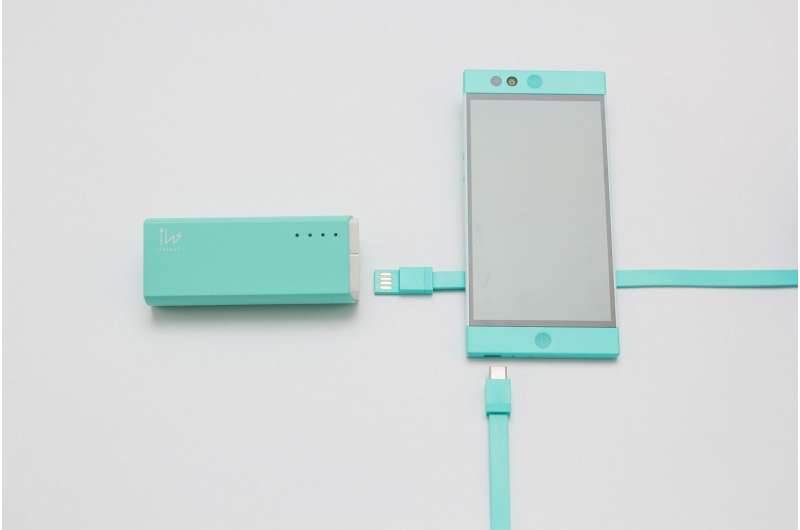This article has been reviewed according to Science X's editorial process and policies. Editors have highlighted the following attributes while ensuring the content's credibility:
fact-checked
peer-reviewed publication
trusted source
proofread
Molecular engineering advances lithium-metal batteries, paving the way for safer, more powerful devices

The boom in phones, laptops and other personal devices over the last few decades has been made possible by the lithium-ion (Li-ion) battery, but as climate change demands more powerful batteries for electric vehicles and grid-scale renewable storage, lithium-ion technology might not be enough.
Lithium-metal batteries (LMBs) have theoretical capacities an order of magnitude greater than lithium-ion, but a more literal boom has stymied research for decades.
"A compounding challenge that further doomed the first wave of LMB commercialization in the late 1980s was their propensity to explode," University of Chicago's Pritzker School of Molecular Engineering Prof. Chibueze Amanchukwu wrote in a recent study.
The study published Nov. 9 in Matter, outlines a way around this decades-old problem, using solvent-free inorganic molten salts to create energy-dense, safe batteries, opening new possibilities for EVs and grid scale renewable energy storage.
"We have developed a non-flammable, non-volatile system that is safe and can actually improve energy densities by 2x (compared to Li-ion)," Amanchukwu said.
Conventional lithium-metal batteries rely on an electrolyte made by dissolving lithium salt in a solvent. Those volatile, flammable solvents—not the salt itself—caused those safety concerns.
To combat this, researchers have tried different solvents or phases or they tinkered with the salt concentration. It was always a trade-off: Batteries using solid-state inorganics for their electrolytes were safer; batteries using liquid electrolytes were more powerful. The results remained either unsafe batteries or batteries that didn't live up to lithium-metal batteries' massive theoretical capabilities.
Amanchukwu's team took a novel approach, questioning the conventional structure of the electrolyte itself.
"The question was what's the solvent doing there in the first place? Just remove it," Amanchukwu said.
Amanchukwu's team made the lithium salt a liquid not by dissolving it, but by melting it. This required creating a new composition of salt that melts at low temperatures. The challenge was to hit a temperature where the lithium salt melts, but the lithium metal used elsewhere in the battery doesn't.
To give a sense of the scope of the task, pure lithium chloride melts at just over 600° C. Lithium metal melts at 180° C, meaning any useful molten salt electrolyte would have to have a far lower melting point.
Amanchukwu and his team created a salt that melts at 45° C, resulting in a powerful battery that can operate safely at 80–100° C.
"That was a sweet spot to be in the middle, to still have all the safety benefits but operate at temperatures that allow it to be liquid," Amanchukwu said.
Amanchukwu's group is continuing to work on salt compositions with even lower melting points, with the final goal of a powerful lithium-metal battery that will operate safely at room temperature.
"How can you get this down to 25° C or 30° C? From a research and applied point of a view, there's lots of excitement there," Amanchukwu said. "We have the opportunity to create a very impactful battery that helps to solve a key global challenge—energy storage."
More information: Low melting alkali-based molten salt electrolytes for solvent-free lithium metal batteries, Matter (2023). DOI: 10.1016/j.matt.2023.10.017. www.cell.com/matter/fulltext/S2590-2385(23)00518-0
















